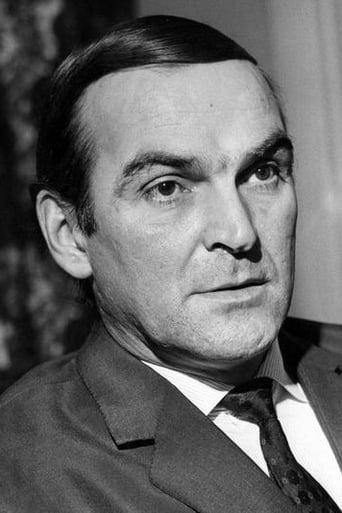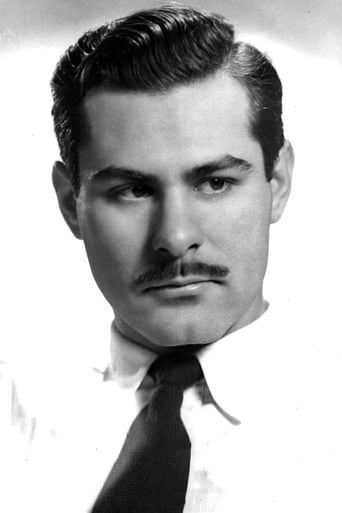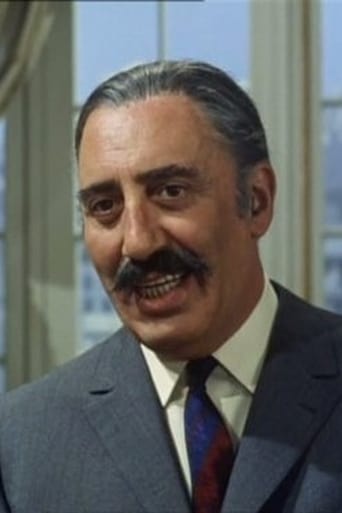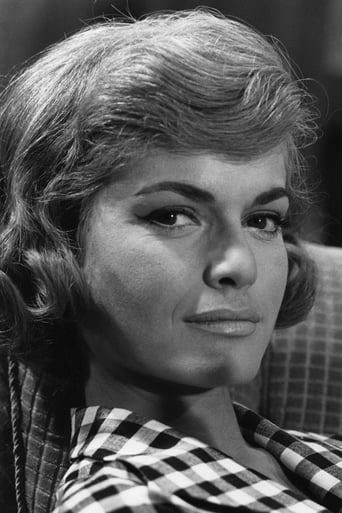VividSimon
Simply Perfect
Platicsco
Good story, Not enough for a whole film
Konterr
Brilliant and touching
Limerculer
A waste of 90 minutes of my life
tony_le_stephanois
Director Joseph Losey's aim was to portray the ups and downs of a criminal life. This might be a common theme nowadays but back in 1960 not nine out of every ten films in the video store was exactly like this. First of all there's a much more unusual story, with three films for the price of one: a robbery, a portrayal of prison life, and a gangster romance. This could be a disappointment for fans of the crime genre. As many outdated acting mannerisms of that time, like the demonstrative walking back after a blow, can be a let down for some.But the film is actually pretty exciting, and most of the credits go to Stanley Baker, who plays Johnny Bannion with an intense style that would become more common in the seventies. Always cheeky, willing to play the highest game, independent. Baker was known having friends in London's underworld. One scene in particular makes him a badass: two gangsters come into his cell with the purpose to rig him but it's Bannion who beats them up. Bannion probably would have lead a Colombian cocaine mafia empire just fine if he had been born a little later.The Criminal is not everyone's cup of tea because of its script, but is definitely a great watch if you like realistic, vicious atmospheres in movies. The jazz music by John Dankworth reinforces the chaotic atmosphere brilliantly.
eyesour
After buying an 8 disc box set of Losey's films, because I wanted to watch Mr Klein, having heard good things about it, I've now watched another 4 of the discs. Mr Klein was interesting, and actually quite good, but as for the rest, frankly, I'm so far unimpressed. To put one's finger on what's wrong with them, they are, firstly, extremely poorly cut and paced. After about twenty minutes one simply ceases to care about the characters, and only dogged determination can see one through to the end. I failed to make it more than once, and after fast-forwarding discovered in any case that the trip would not have been worth it.Secondly, they are irritatingly self-regarding and self-conscious. One gets the constant impression that Losey is permanently saying: Look at me, and what I'm doing. I'm a serious, committed, self-confessed Communist and Stalinist (he actually maintained this attitude for a time), and all you precious intellectuals out there owe it to yourselves to admire and respect me. Sorry, Joe, I'm just not with you on that one. Moreover, although this turgid film includes what amounts to a near-comprehensive roll-call of English character actors, I simply do not respond to the thespian qualities of Losey's frequently employed leads, such as Baker and Bogarde. Baker may have a slight edge over Bogarde, but I wouldn't want to meet either of them.In the end these films are not entertaining, and their messages are painfully dated. If they ever conveyed anything constructive at all, it was only for a short period, post-war and pre-rock n' roll: 1945-1955. True art is gripping and timeless.Two out of ten stars. What has gone wrong with the star system?
bkoganbing
The blacklisted Joseph Losey whose loss to the American cinema was the United Kingdom's gain took his knowledge of American prison films to fashion this gem. Starring in Concrete Jungle is the premier British tough guy Stanley Baker in a role that in America, Humphrey Bogart might have been given first crack at.Whoever said there was no honor among thieves must have run with Baker's mob. When we meet him, he's a day away from his release from one jail sentence, but not until some prison justice is meted out to a newly arriving Patrick Magee with whom Baker has a grudge over a previous job. No sooner is Baker out than he's back in a nice caper concerning the robbery of a racetrack. But thieves being what they are somebody rats and Baker's back in stir. But not before he's buried the loot and doesn't tell anyone, the same thing he was mad at Magee for.It's a scurvy lot Baker has for friends, I haven't seen this many bad people hold a viewer's interest without there being any redeeming good people in a film since I first saw Goodfellas. But like Goodfellas there is something fascinating about Baker and the whole crew, people like Sam Wanamaker, Gregoire Aslan, etc. Even the cops like Laurence Naismith aren't especially heroic. Naismith admits as much, he's just got a well developed system of stool pigeons which any cop worth his badge has.Baker really dominates the film, the United Kingdom hasn't produced an actor like him since. Concrete Jungle is a classic example of his tough guy appeal and a great introduction to him.And you'll love Cleo Laine's singing of A Thieving Boy at the beginning and end of the film.
allenrogerj
A strange film.On the one hand it is a realistically drawn Melvillean study of criminals who fall out and destroy one another; on the other it is a non-naturalistic Behanesque portrayal of prison life, its hierarchies and the relationships among and between warders and prisoners. At a guess, the crime story dominated in the original script and Alun Owen emphasised the prison scenes and introduced the element of ensemble work in the later version. The problem with this mixture of films, either of which could be good on its own, is that they don't fit together- that's leaving aside the film's Dickensian relish for characters, regardless of their relevance to the story. Thus the comic Northerner who wants to hire the gang's getaway taxi after the robbery, the piano-tuner in Bannion's flat (what does Bannion want a piano for anyway?- it's isn't consistent with his character.) when they are talking plans for the robbery, many of the prisoners- effectively portrayed as helplessly institutionalised, Magee's talismanic and enigmatic head warder, the prison doctor, the cynical prison governor- all distract from the film's plot, but aren't given enough time for their own story, which might be more interesting- the mixture of antagonism and co-operation between prison staff and prisoners- "Come on" says a screw, "I always treat you straight; you do the same for me." an effective tactic- is well-portrayed and rouses our interest without satisfying it. Equally, important parts of the crime story are thrown away- we never see the robbery and Bannion goes back to prison remarkably quickly- six weeks, we are told- we never even learn how long he will spend back in prison. The women- the abandoned moll played by Jill Bennett and her replacement- aren't convincing at all, mere plot-devices; on the other hand, the suggestion that some of the characters are homosexual is well-placed and carefully shown in passing. There are strengths too- effective and sometimes beautiful camera-work, especially in the prison scenes, all of the actors are good in their parts, a very fine score by John Dankworth. It's certainly a film worth seeing, but we can't help regretting what it could be but isn't- but then, that's true of so many British films.






